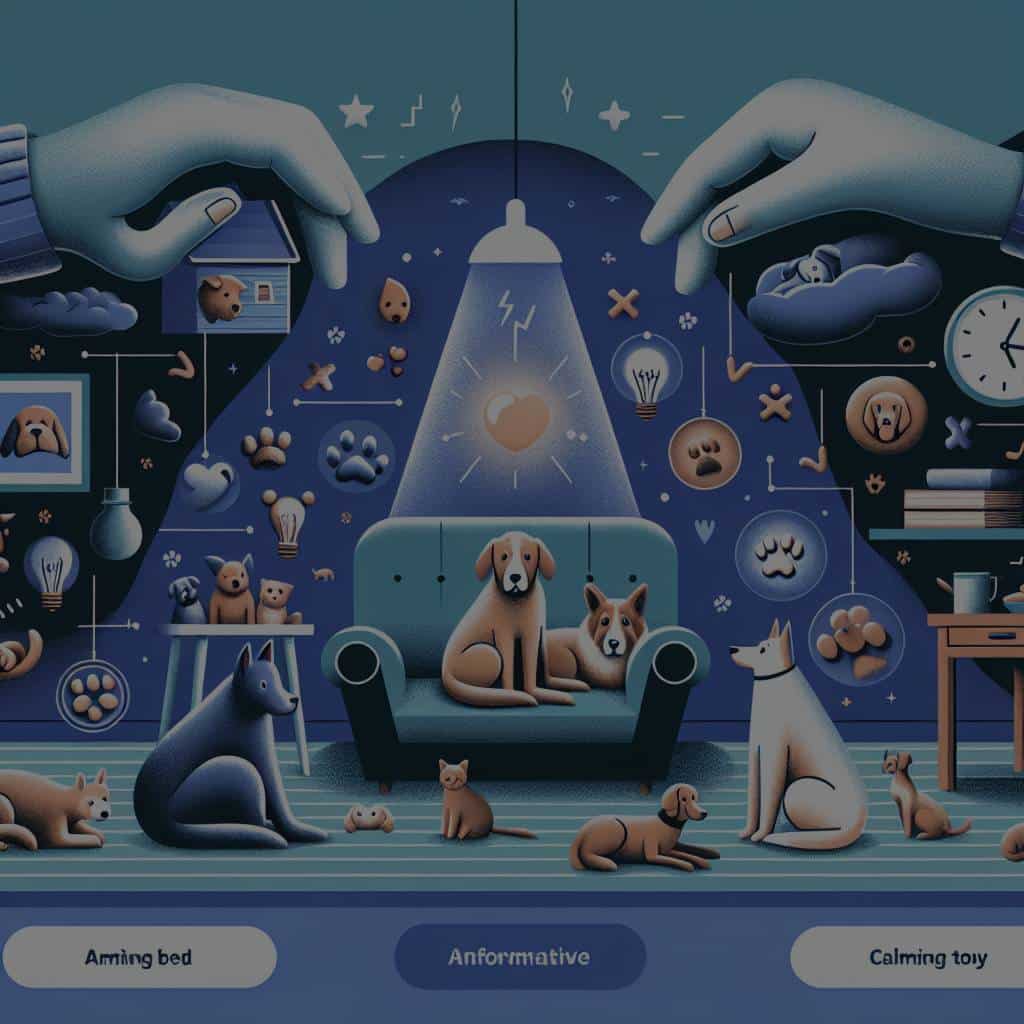As our beloved canine companions grow older, they can sometimes exhibit behavioral changes that may perplex or worry us. One such change can be the development of nighttime anxiety. Understanding these changes and how to deal with them can make a significant difference in ensuring that our furry friends enjoy their golden years.
Let’s explore what nighttime anxiety in dogs entails, its determinants, and how to handle this issue effectively. This article will provide you with the necessary knowledge and tools to help your senior dog overcome nighttime anxiety, ensuring they get the sleep they need.
Also read : How to Properly Insulate an Outdoor Cat Shelter for Winter?
Understanding Nighttime Anxiety in Elderly Dogs
Before we can come up with a solution, it’s important to understand the problem at hand. Nighttime anxiety in dogs is characterized by restlessness and distress during the night. This anxiety can stem from various issues – from simple lifestyle changes to medical conditions like cognitive disease.
As dogs age, they may become more anxious at night for several reasons. They may be suffering from physical ailments like arthritis or other forms of chronic pain, which make it harder for them to get comfortable and sleep. Changes in their cognitive function, often related to age, can also play a significant role. This cognitive decline can lead to confusion and distress, particularly during the darker hours when their vision is impaired.
Also to read : How to Implement a Weight Loss Plan for Overweight Ferrets?
The symptoms of nighttime anxiety in dogs can range from pacing and whining to more destructive behaviors like scratching at doors or chewing furniture. As a pet parent, recognizing these symptoms is the first step in helping your dog deal with their anxiety.
Seeking Veterinary Assistance
If your dog has started showing signs of anxiety at night, it’s crucial to consult your vet. This is particularly important if the behavior is sudden, as it could indicate a medical issue that needs immediate attention. While anxiety is often behavioral, it can also be symptomatic of underlying health issues, including pain or cognitive disease.
A comprehensive examination by your vet will help identify the root cause of the anxiety. Your vet might carry out a series of tests, including blood tests, X-rays, or even cognitive function tests, to rule out any medical issues. If a medical problem is identified, your vet will recommend appropriate treatment to manage the condition.
Using Behavioral Modification Techniques
If your vet rules out any medical issues contributing to your pet’s nighttime anxiety, behavioral modification techniques can be an effective way to manage the problem. The goal here is to make your pet feel safe and secure during the night.
One approach is to ensure your dog has a comfortable and secure sleeping area. This could be a cozy bed in a quiet corner or a crate if your dog is used to sleeping in one. You could also consider adding a heating pad or blanket, particularly for dogs suffering from joint pain.
Another technique involves maintaining a consistent night routine. Dogs thrive on routine, and consistency in their night schedule can help reduce anxiety. This could involve a short walk before bed, a calming massage, or even a special bedtime treat.
Exploring Medication and Therapeutic Options
In some cases, behavioral modification alone may not be enough to alleviate your pet’s anxiety. If the anxiety is severe or persistent, your vet might suggest medication or therapeutic options.
There are various medications available that can help manage anxiety in dogs. These range from anti-anxiety drugs to natural supplements like melatonin. It’s essential to discuss these options with your vet, considering the potential side effects and the overall health of your pet.
Therapeutic options can include the use of pressure wraps or anxiety wraps. These wraps apply gentle, constant pressure on a dog’s body, providing a calming effect. They can be particularly useful during times of heightened anxiety.
Incorporating Environmental Changes
Lastly, making some changes to your pet’s environment can also help reduce anxiety. This can involve using night lights in areas where your dog spends most of their time. As dogs get older, their vision can deteriorate, increasing their anxiety levels at night. Having some light can help them navigate their surroundings better and feel more secure.
Playing soft, calming music can also have a soothing effect on anxious dogs. There are even specific playlists and tracks designed to reduce stress in pets.
Addressing nighttime anxiety in elderly dogs requires understanding, patience, and consistency. It’s essential to remember that every dog is unique, and what works for one might not work for another. The key is to be patient, observe your pet closely, and be willing to try different approaches until you find what works best for your pet.
Implementing a Calming Routine for Your Senior Dog
Creating a calming routine is an essential step to curb nighttime anxiety in older dogs. Dogs are creatures of habit and they thrive when their daily activities follow a specific pattern. This principle holds severe importance when dealing with an anxious dog, particularly during the night.
Consider establishing a regular evening routine that involves calming activities such as gentle petting, massaging, or playing soft music. For instance, a light massage can help relax your dog’s muscles and alleviate any physical discomfort that might be contributing to their anxiety. Use gentle, slow strokes to massage your dog, focusing on areas where they might be holding tension such as the neck, shoulders, and hips.
Playing soft, soothing music or white noise can also create a relaxing environment for your dog. Numerous studies have proven the effectiveness of music as a therapeutic tool for alleviating anxiety in both humans and animals. Opt for slow, classical music or soundtracks specifically designed for dogs. Remember, the aim is to create a tranquil ambiance that will help your dog wind down and prepare for sleep.
A calming routine will not only help your senior dog cope with anxiety but will also signal to them that it’s time to rest. Stay consistent with this routine, and over time, your dog will associate these activities with sleep, helping them rest easier during the night.
Conclusion
Addressing nighttime anxiety in elderly dogs is a process that requires patience, understanding, and consistency. If your older dog is struggling with anxiety during the night, the first step is to seek advice from your vet to rule out any underlying health issues like cognitive decline or other ailments. Once medical conditions are ruled out or managed, implementing strategies like behavioral modification, environmental changes, and a calming routine can significantly alleviate your pet’s anxiety.
Remember that every senior dog is unique, and what works for one might not work for another. Tailor these suggestions to suit your pet’s preferences and behavior. In severe cases, your vet might recommend medication or therapeutic options.
Above all, the key is to provide a safe, secure, and loving environment for your older dog. With the right approach and plenty of patience, you can help your furry friend enjoy a peaceful and restful night. Your earnest efforts will go a long way in ensuring that your beloved pet enjoys their golden years with minimal stress.






